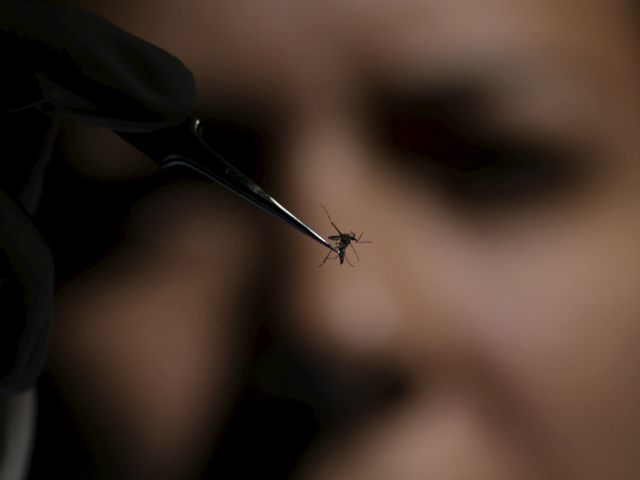Local mosquito control departments in the Gulf Coast will be the front lines of the fight against the Zika virus in the United States, reports Wired magazine.
Some of the poorest U.S. neighborhoods are reportedly at the highest risk for being afflicted by the mosquito-borne Zika virus.
Wired quotes Peter Hotez, chief of the Baylor College of Medicine National School of Tropical Medicine, as saying, “The Gulf Coast is vulnerable because we have both mosquito vectors and poverty. Poverty is an important risk factor because people live in poor quality housing with broken screens, poor garbage collection.”
East Houston, where half the population lives in poverty, is of the most concern, reports Wired.
Mosquito control programs in the U.S. are often ineffective and underfunded, warns the magazine.
“In the U.S., our vector control programs are not very effective,” Robert Tesh, a mosquito-borne disease expert at the University of Texas Medical Branch, who has collaborated with the Harris County mosquito control, told Wired.
“Where Have All the Vector Control Programs Gone?” reportedly lamented an environmental health scientist with the U.S. Centers for Disease Control and Prevention (CDC) in 2010, noting widespread budget cuts to local programs.
CDC reports that there are no locally transmitted cases reported in the continental United States, adding that cases have been detected among returning travelers.
Moreover, local transmissions have been reported in Puerto Rico, the U.S. Virgin Islands, and American Samoa — all U.S. territories.
CDC predicts that the Zika cases among travelers visiting or returning to the U.S. will likely increase given the recent outbreak in Latin America and the Caribbean, noting that the imported cases could fuel the local spread of the virus in some areas in the United States.
Some regions are already preparing to fight Zika in the United States.
“Every summer, millions of mosquitos hatch along the Gulf Coast and set out on a quest for blood. It’s only February, but people are already worrying about mosquito season thanks to Zika, a mosquito-borne virus that may cause debilitating brain defects in babies and is currently racing through Latin America,” notes Wired. “The Gulf Coast is almost certainly next.”
“When the mosquito hordes do descend this summer, the front lines of the fight against Zika will not be in some high-tech lab, but in local mosquito control departments,” it adds. “A vaccine or cure for Zika is years away, so controlling Zika means controlling the vector that spreads the virus from person to person: the Aedes aegypti mosquito, whose range in the US follows the Gulf Coast.”
The mosquito control program in Harris County, Texas, is one of the more robust in the United States, given that the county is the third most populous in the country.
Moreover, the presence of the virus-carrying mosquito — which is also responsible for bringing dengue, yellow fever, and chikungunya to the United States — is common in Harris County.
County residents also tend to travel to Latin America, home to the Zika outbreak. CDC estimates that there are 30 countries and territories worldwide with active Zika virus transmission, most of which (26) are in Latin America and the Caribbean.
“It’s a matter of when, not if,” said Umair Shah, executive director of Harris County Public Health and Environmental Services, referring to Zika reaching the continental U.S.
Wired learned from Mustapha Debboun, the head of mosquito control in Harris County that the African vector “likes to fly low, biting ankles and feet—too low to spray with pesticides from helicopters or trucks … [and] they like to live indoors in dark, cool spaces like under the bed.”
“The most effective way to control A. aegypti is to get rid of the small—even tiny—bodies of water where they breed,” notes Wired.

COMMENTS
Please let us know if you're having issues with commenting.